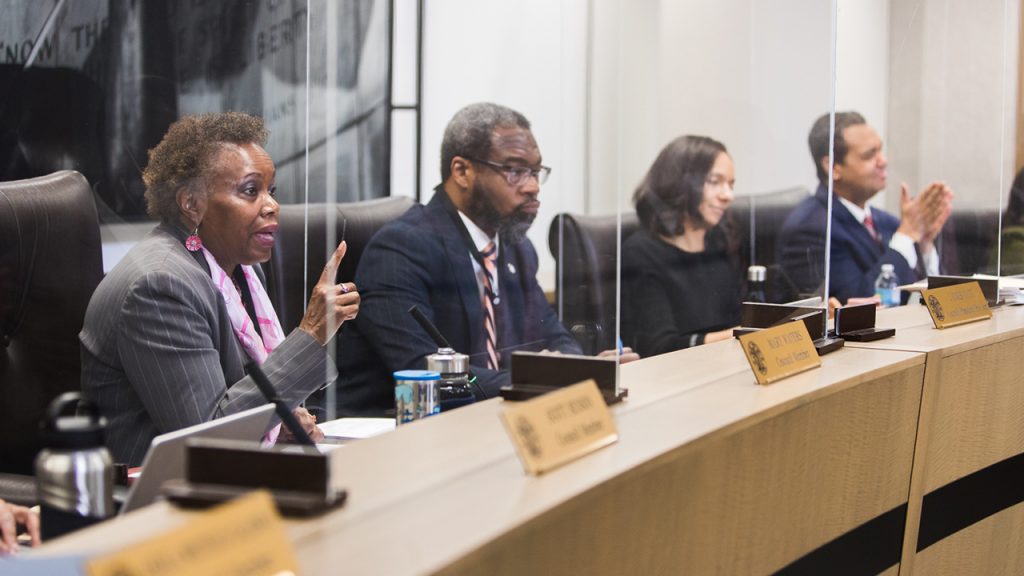Detroit City Council directs ARPA funds to Detroiters
Bridge Detroit reporter Malachi Barrett says the goal is to “provide direct relief to residents that had a hard time during the pandemic who were financially hurt and ultimately make it easier to live here,” he says.

Bridge Detroit’s city hall reporter Malachi Barrett recently covered a Detroit council meeting in which the council approved an increase of $12.7 million in the 2022-23 fiscal year budget. The council also requested to allocate nearly $68 million of the American Rescue Plan Act funds to help Detroiters to stay in their homes.
He says it’s a part of a larger pool of money allocated to Detroit as federal COVID-19 relief money. He says the Detroit City Council hopes the money is used to keep Detroiters in the city.
“The City Council essentially ask(ed) the mayor’s administration to use almost $68 million on different programs that ultimately are aimed at helping people stay in their houses, helping get their homes up to code, do really important repairs and maintenance projects and other things that support residents directly,” he says.
The money was given on a one-time basis.
“The city is kind of looking at creative ways to use it to do things that they weren’t able to do in the past. Overall the theme is to provide direct relief to residents that had a hard time during the pandemic who were financially hurt and ultimately make it easier to live here,” he says.
Detroit receives $826.7 million in ARPA funds, which has to be allocated by 2024 and spent by 2026, says Barrett.
“I think there’s a balancing act of doing things that are ambitious and could be transformational, and also not wasting this money … Detroiters really want to see the accountability piece,” he says.
He says it could change things for people. They are skeptical that government may use the money in their own interest.
The Detroit City Council also approved a $12.7 million increase for the city’s budget to utilize toward programs to keep Detroiters in the city. Residents said they wanted funds for a right-to-counsel to assist in eviction proceedings and $2 million for a program to support Detroiters who are overtaxed between 2010 and 2016.
Some things that were taken out from the budget $7 million in appropriations, $1 million for demolitions and $1 million for police cadet programs.
“It didn’t appear to me in the reporting that there were substantial cuts the City Council proposed versus what the mayor’s office had put in place,” he says.
Barrett says he used Detroit Documenters notes to support his reporting.
“I view it as kind of like a safety net for the working journalists here. There’s somebody that you can refer back to that has a great kind of record that is independent from what the city’s record is on what occurred in these meetings,” he says.
The notes are available to the public at documenters.org.
This story was a collaboration with WDET, Bridge Detroit and Detroit Documenters, a program that trains and pays people to attend and record city meetings.
Trusted, accurate, up-to-date.
WDET strives to make our journalism accessible to everyone. As a public media institution, we maintain our journalistic integrity through independent support from readers like you. If you value WDET as your source of news, music and conversation, please make a gift today.
